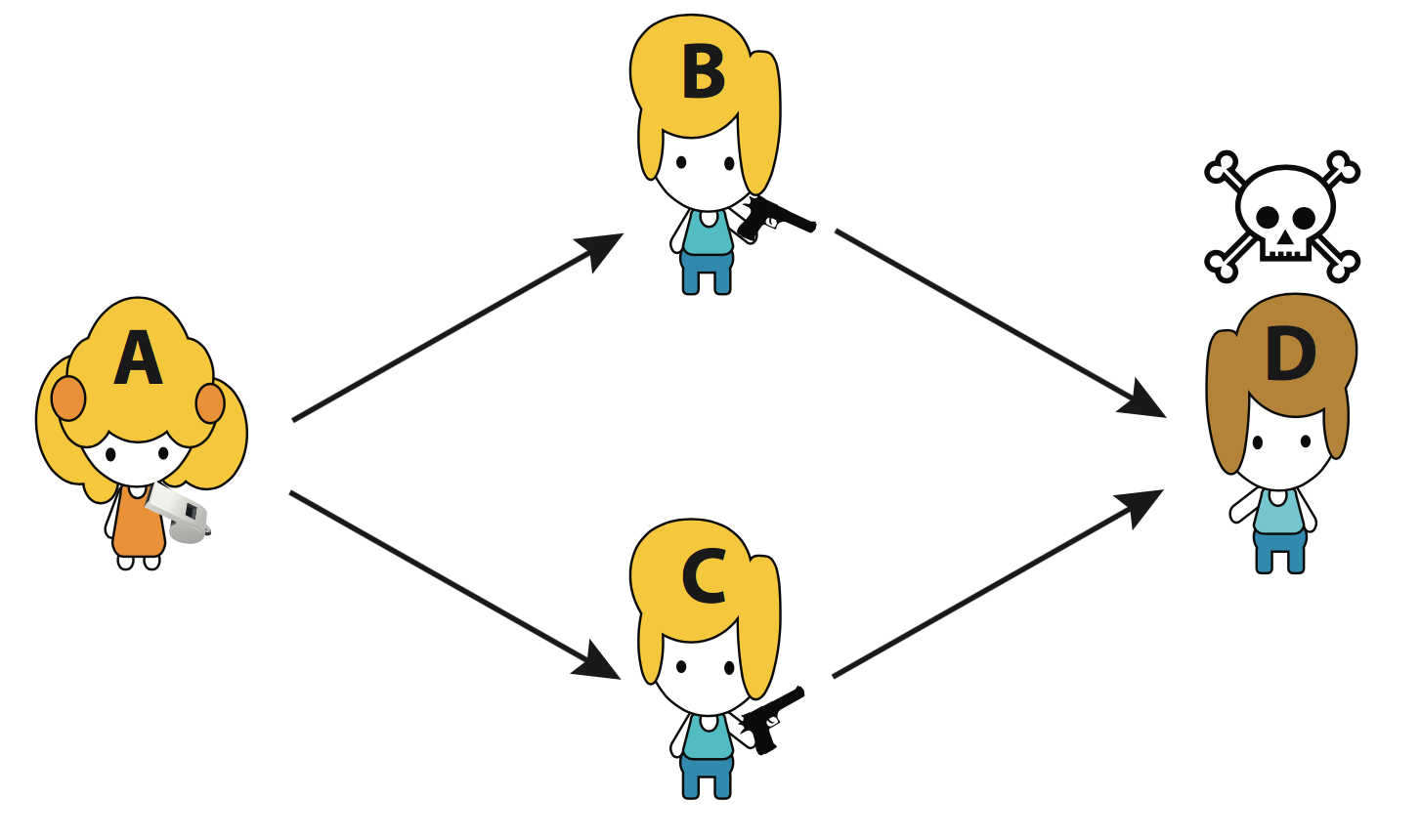
Back on track: Backtracking in counterfactual reasoning
Abstract
Would Dan have died if Bob hadn’t shot? In this paper, we show that people’s answer depends on whether or not they are asked about what would have caused Bob not to shoot. Something needs to change in order to turn an actual world into a counterfactual world. Previous findings of how people reason about counterfactuals have been mixed: sometimes people appear to backtrack and reevaluate the causes of a counterfactual state (e.g. Rips, 2010). At other times, people appear to treat counterfactuals like interventions that leave the past unchanged (Sloman & Lagnado, 2005). We experimentally manipulated the order in which participants were asked to consider the consequences of a counterfactual state. The results show that participants are more likely to backtrack when explicitly asked to consider a counterfactual’s causes. However, when directly asked about the effects of a counterfactual state, most people don’t backtrack.
<< Back to list of publications